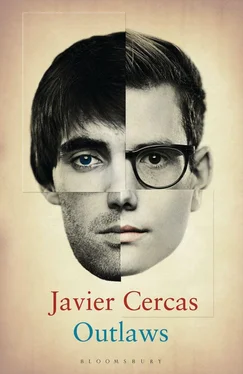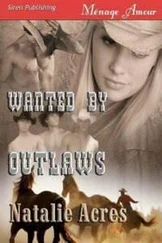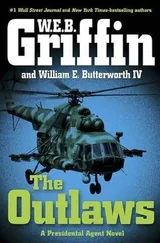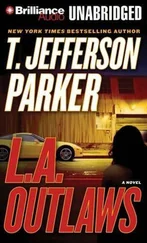‘A violent downpour was falling over Font de la Pòlvora when I walked out of Tere’s building.
‘That night and the next two days were agonizing. I didn’t want to phone Tere or return to Font de la Pòlvora, but I sent her several texts. At first she answered. I asked her how she was and if she needed anything and she answered that she didn’t need anything and that she was fine. The last text she sent me said: “I’m better, Gafitas. The doctor’s given me the all-clear. I’m off. Bye.” I replied congratulating her, asking her where she was and where she was going, but she didn’t answer me any more. Once the first moment of frustration was over, I calmed down, and then the anguish turned into a bittersweet feeling: on the one hand I thought I wouldn’t see Tere again, that this was the end of the story and everything that had to happen to me had now happened to me; but on the other hand I thought I finally knew the truth and that, now, everything did fall into place. The calmness — or at least the calming sensation that everything fell into place — didn’t last long. One of those nights, while I was having a drink at home before going to bed, I was struck by a doubt. I spent most of the night battling it, and the first thing I did the next morning when I got to the office was ask my secretary to find me Inspector Cuenca’s phone number. I suppose I’ve told you that after the summer of ’78 the inspector and I still saw each other.’
‘You mentioned it; the inspector also told me that after that summer you lost touch with each other for some years, after which you began to see each other again as if you’d never met.’
‘It’s true. We pretended we didn’t know each other, and we pretended very well. We mostly saw each other at the time when he worked for the civil government, almost directly across the street from my office, as a security advisor for the governor. We became rather friendly during those years, but even then neither of us ever mentioned anything, much less whether he had been on the verge of sending me to prison for belonging to Zarco’s gang. Later we stopped seeing each other again and then, not long ago, I heard that he’d been chief of the airport police station for some time. And there, at the airport, my secretary found him that morning. When I told the inspector I needed to talk to him, he just asked: Is it urgent? It is for me, I answered. He said his morning was pretty busy but we could see each other mid-afternoon, and suggested I come see him in his office at the airport. It’s a private matter, I said. I’d rather talk somewhere else. I heard silence at the other end of the line; then I heard: Well, as you wish. He asked when and where we should meet; I said the first thing that came into my head: at six, on a bench in Sant Agustí Plaza.
‘At quarter to six I was already sitting in the sun on a bench in Sant Agustí Plaza, in front of the statue of General Álvarez de Castro and the city’s defenders. Shortly after six Inspector Cuenca showed up, out of breath and with his jacket folded under his arm. I stood up, shook his hand, thanked him for coming, suggested we could have a coffee at the Royal. The inspector dropped onto the bench, loosened the knot of his tie and said: First tell me what you want to talk about. I sat down beside him and, without giving him time to catch his breath, asked: You haven’t guessed? Still panting, he gave me a look that was halfway between ironic and suspicious; he asked: You want to talk about Zarco? I said yes.
‘The inspector nodded. He seemed to be ageing well, but for some reason his face made me think of a tortoise; a sad tortoise. He was facing straight ahead, his gaze fixed on the statue of General Álvarez de Castro or on the maple trees that surrounded the centre of the plaza or on the big white parasols that shaded the terraces of the bars or on the arches or the cream-coloured façades covered with strings of wrought-iron balconies; a drop of sweat trickled down his cheek. Well, he said with resignation, once he’d caught his breath. I suppose it had to happen sooner or later, didn’t it? Arranging his jacket on his lap he asked: What do you want to know? Just one thing, I answered. Who was the informer? Inspector Cuenca turned to me as he wiped away the drop of sweat from his cheek; I asked: You know what I mean, don’t you? Before he could answer I reasoned: You were waiting for us outside with your people. You knew we were going to rob that bank. Somebody must have told you. Who was it? Inspector Cuenca didn’t look away; he seemed more annoyed than intrigued. What do you want to know that for? he asked. I need to know, I answered. What for? Inspector Cuenca repeated. This time I didn’t answer. Inspector Cuenca blinked several times. I’m not going to tell you, he finally said, shaking his head. Professional secret. For fuck’s sake, Inspector, I said. It was thirty years ago. That’s true, said the inspector. And that’s precisely why you should have forgotten this story by now. I, however, still have my obligations, especially to people who confided in me. Would you reveal a client’s secret, even thirty years after they confided in you? Don’t play games, Inspector, I protested. This is not a normal case. Don’t play games, Counsellor, he protested. There’s no such thing as a normal case.
‘We fell silent. I let a few seconds go by. OK, I conceded. I’m not going to ask you to tell me who it was. I’ll just ask you to tell me yes or no. I paused and then asked: Was Tere the informer? Now Inspector Cuenca looked at me with genuine unmitigated curiosity. Tere? he asked. Which Tere? Zarco’s girlfriend? I was about to tell him that she wasn’t actually his girlfriend but Zarco’s sister, but I just said yes. Inspector Cuenca’s face gradually lit up, until the laughter illuminated it entirely; I think it was the first time in my life I’d ever seen him laugh: it seemed like a strange laugh, the cheerful laughter of a young man from the disillusioned face of an old one. What’s the matter? I asked. Nothing, he answered. The inspector barely smiled but he wasn’t sweating any more, although it was still hot; his thick veiny hands were still holding his jacket on his lap. It’s just that I can’t believe you’re serious, he said; immediately he asked: You liked that girl, didn’t you? I blushed. And what’s that got to do with it? I asked. Nothing, said the inspector and, meaning you, he added: The journalist who’s going to write about Zarco told me. What he told me is that you joined Zarco’s gang for the girl. Is that true? I couldn’t see any need to lie, so I told him it was true. I asked the inspector why he asked; he said no reason; he went on: And might I know where you got the idea that the girl was my confidante? I didn’t say she was your confidante, I corrected him, I just asked if that time she was your informer. Same thing, he said. Who knows what you’ve told that journalist. . But have you forgotten how things worked with Zarco? Do you really think one of his own would have dared talk? Would you have dared talk? Don’t you remember how scared everyone was of Zarco? I wasn’t scared of him, I hastened to reply. I did what he said but I wasn’t scared of him. Of course you were scared of him, said Inspector Cuenca. And if you weren’t you were more oblivious than I thought, more oblivious than any of your friends. Zarco was a nasty piece of work, Counsellor. Very nasty. As far as I know he always was. How would any of his own dare to inform on him? And, least of all, that quinqui girl; you must have known it: she was as loyal as a dog, I couldn’t have got her to give up Zarco even if I pulled her fingernails off.
‘I thought Inspector Cuenca was right. I thought that, actually, before talking to Inspector Cuenca I already knew that Tere could not have been the informer, and that I’d only wanted to talk to Inspector Cuenca to confirm it. I have another question, I said to Inspector Cuenca. He was staring straight ahead, with his eyes half-closed against the sun; the jacket placed on his lap concealed his belly. I said: I’ve always wondered why you let me go that night, why you didn’t arrest me. Inspector Cuenca immediately understood I meant the night he came looking for me in Colera, and the proof is that only a couple of seconds went by before he murmured: Now that is a good question. He said it without looking at me, curving his wide mouth and thick eyebrows; since he didn’t go on I asked: And what’s the answer? He let another couple of seconds go by and said the answer is that there is no answer. That he didn’t know what the answer was. That he had no idea. That he had never let any other guilty suspect go on purpose and at first he even regretted having done so, until he reached the conclusion that he might have done it for the wrong reasons. Here he seemed to reflect for a moment and added: Like all the best things I’ve done in my life.
Читать дальше












